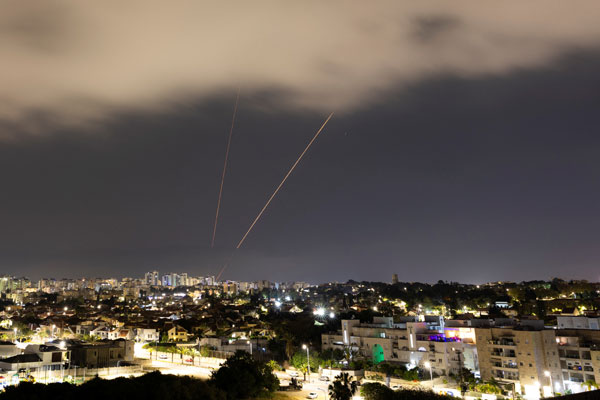Nation in the dark on eve on 'defiance day'

Chadema chairman Freeman Mbowe leaves Central Police Station in Dar es Salaam on Monday evening after he was questioned along with several other senior officials of the opposition party. PHOTO | SAID KHAMIS
What you need to know:
- With security agencies cracking down on Chadema leaders around the country, the party’s officials have had little space to mobilise supporters for the demonstrations called as a show of defiance against the government’s “increasingly dictatorial tendencies”.
Dar es Salaam. Uncertainty hangs over tomorrow’s pro-democracy protests called by Chadema, with little information on whether the demonstrations and rallies will go ahead as planned.
With security agencies cracking down on Chadema leaders around the country, the party’s officials have had little space to mobilise supporters for the demonstrations called as a show of defiance against the government’s “increasingly dictatorial tendencies”.
The party’s national leaders, including chairman Freeman Mbowe and former Prime Minister Edward Lowassa, have been kept under close watch by police in the last few weeks.
Mr Mbowe and Lowassa were on Monday flushed out of a party meeting in a Dar es Salaam hotel and held for several hours at Central Police Station before they were released and directed to report back tomorrow, which is “Defiance Day” declared by the party.
Several other senior officials, including deputy secretary-general (Zanzibar) Salum Mwalimu, were languishing in police custody yesterday following their arrest last weekend.
Tension has steadily been building up, with neither side showing any sign of relenting. While Chadema has vowed to press on with its plans for nationwide demonstrations and rallies, the government says any attempt to disrupt peace will not be tolerated.
Human right activists yesterday condemned the government’s continued “harassment” of Chadema leaders and ban on some media outlets. One newspaper has been banned for three years and two radio stations suspended indefinitely for allegedly publishing and airing seditious material.
Independent analysts gave mixed views yesterday as unconfirmed reports said Chadema national leaders were holed up in a secret meeting in the city.
Surveys in a number of cities and major towns around the country did not reveal any clear plan for demonstrations except for sporadic hoisting of party flags by individual supporters.
There was also reduced activity by police, who have in recent weeks been conducting exercises in Dar es Salaam and other urban in what is seen as a show of force ahead of the planned demonstrations.
Attorney General George Masaju on Monday supported the police ban on political demonstrations, saying the decision was within the confines of the law.
Efforts to reach opposition officials to confirm whether their plan was on were futile yesterday as no one wanted to say where they were holding their meeting.
Activists and academicians yesterday made a last-ditch call, urging both the government and the Opposition reconsider their positions to avoid a potentially bloody confrontation.
The chairman of the Commission for Human Rights and Good Governance (CHRGG), Mr Bahame Nyanduga, said there was a need for both parties to let the High Court decide on applications filed by Chadema.
“On August 10 we advised the Opposition not to take any action until the court gives its ruling on the cases filed by Chadema in Dar es Salaam and Mwanza challenging the police ban on political rallies. We hereby repeat that this matter is in court. Let’s wait for the court’s ruling as we did just before last year’s elections when there was the disputed 200 metre issue. The court was left to interpret the issue and life went on,” Mr Nyanduga said.
A political analyst from the University of Dar es Salaam (UDSM), Dr Benson Bana, said both sides in the dispute should reconsider their earlier decisions in the dispute. Chadema should reconsider if demonstrations were the only way of addressing their political concerns and the government should review some of its decisions that were now not acceptable to the public.
“It is obvious that Chadema’s campaign is now full of cracks, while the government also needs to reconsider its responsibilities to the people,” he said.
Prof Bonaventure Rutinwa, also from UDSM, said both sides should use wisdom because nobody would be spared of the consequences of an ugly aftermath of September 1.
“The warring parties should not be ashamed of sitting around a table. Religious leaders and the office of the Registrar of Political Parties should continue with their efforts to resolve the impasse.”
Gender and human rights advocate Gemma Akilimali urged Chadema to abandon its plans to demonstrate to avoid violent confrontations with police. She also urged the government to take the initiative to hold talks with the Opposition.
“Tanzanians have already been psychologically affected by what happened during the 2015 General Election, and they are not ready for what has the potential to be a breakdown of law and order,” she said.
Prof Gaudance Mpangala of the Ruaha Catholic University said the government should direct the Police Force to provide security to Chadema to ensure the party holds peaceful rallies and demonstrations as stipulated in the Constitution. Chadema, on the other hand, could shelve its plans for demonstrations and rallies to avert disruption peace and security in the country.
Prof Mpangala said both sides should give room to negotiations.



